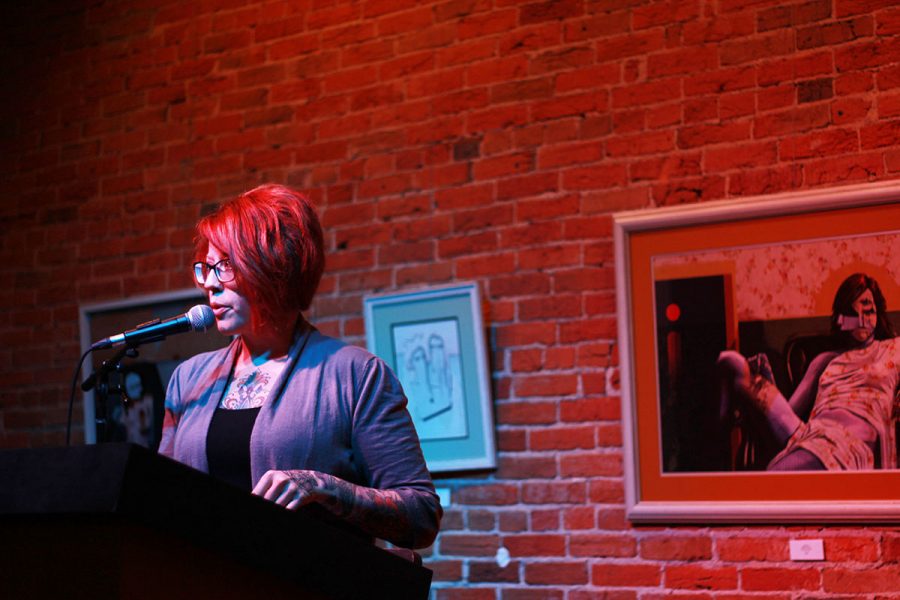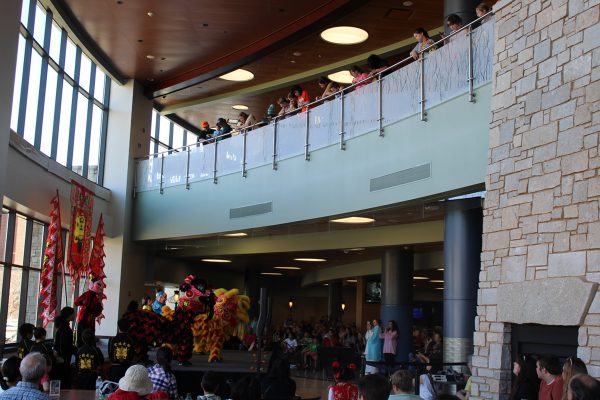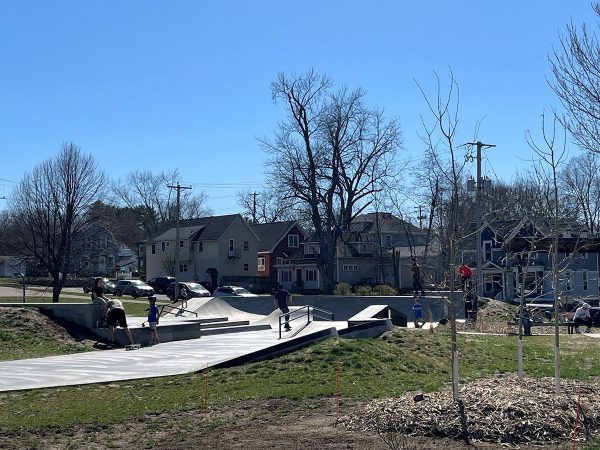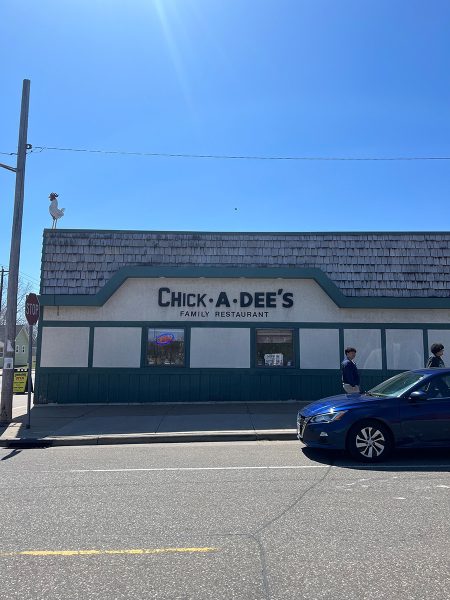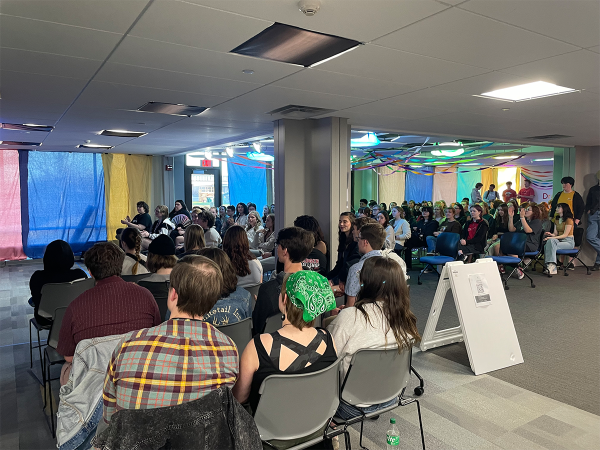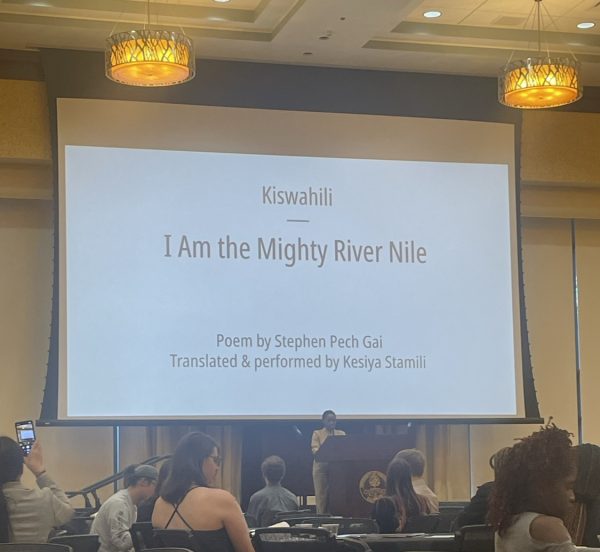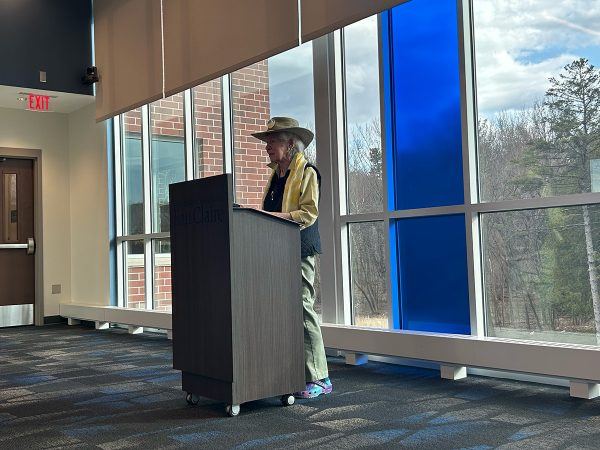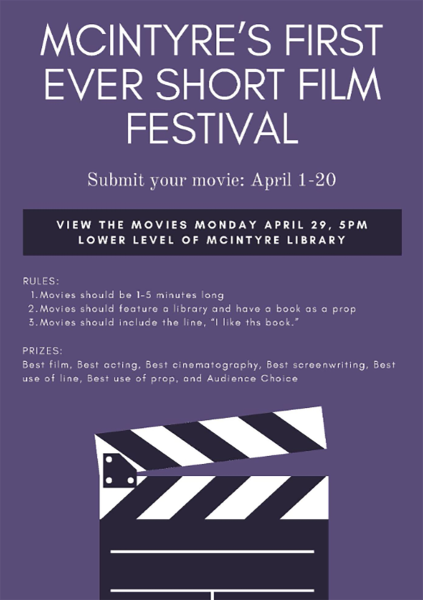Women speak out about sexual violence
Volume One Gallery provides “warm” environment for discussion on the heavy topic of the #MeToo movement
More stories from Rebecca Mennecke
Photo by Gabbie Henn
Through poems, stories and other writings women illustrated the pain of their personal experiences of sexual violence and abuse.
In the Volume One Gallery, in what was described as a “warm” environment by the organizer of the #MeToo and #TimesUp event, many gathered Tuesday night to share stories, art and poetry about personal experiences with sexual violence, harassment or abuse.
The event also included music by local Chippewa Valley singer and songwriter, Caitlin McGarvey on guitar.
The term ‘Me Too’ was created by Tarana Burke in 2006 as a way to show support to those who experienced sexual violence. Twelve years later, it was joined with the more recent movement, ‘Times Up,’ positing that the time is now for violence against women to end.
“I think the MeToo movement is very empowering and powerful, and I just think it’s really important to support and learn more about,” Maureen Brandl, a rhetorics of science and technology student said.
“We’re not only making a difference, but our voices are actually starting to get heard. And everyone is backing us,” Kaolee Lor, a linguistics student said. “I also think it’s a really great opportunity for men to start backing women.”
The room was quiet as many stood in front of the small group of people and spoke about deep, personal experiences with sexual violence.
“I felt incredibly powerless,” Jodie Arnold, the event’s organizer, said about her own experience.
Kessa Albright, a fourth-year women’s, gender, and sexuality studies student and co-president of the College Feminists, stressed the importance of events like these.
“This event just creates a space for women and other people affected by sexual assault and sexual violence to kind of have that support of community,” Albright said. “It’s very empowering just to be open about these things.”
Albright said sexual violence occurs to men as well they should feel invited into the conversation about gender violence as well.
“It’s important for men to educate themselves on the things that they do or say that might make women uncomfortable or feel unsafe,” Albright said, “and it’s important for them to become allies and express that unapologetically.”
Amanda Schumacher, from the Eau Claire Sexual Assault Outreach office, was present at the event for any students who might have been triggered by the tough topics of the event.
“It’s so important for people to be able to openly and honestly share their own stories, but, you know, we need to strike that balance and make sure that there is support for others who might feel triggered or traumatized,” Schumacher said.
Schumacher spoke of the resources in the Center for the Awareness of Sexual Assault (CASA) and also said she recommends students who are affected by sexual assault or violence in any way to visit Amanda Mondlock, the coordinator for CASA.
“She is a free and confidential resource for any student that has been impacted by sexual violence, either recently or at any time in their past, or if they’re looking for a way to support a loved one who might have been affected by sexual assault or abuse or harassment,” Schumacher said.
Brandl said it is important to have conversations that are as deep as #MeToo.
“How can we expect change if we can’t even have these difficult discussions?” Brandl said.

